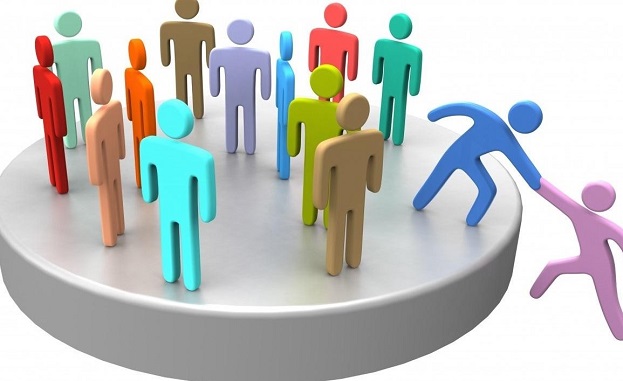
Socialization through physical activity: the role of the family
Today, in developed countries, children are widely involved in sports activities. In Canada, for example, seventy-one percent of children between the ages of six and nine and eighty-four percent of children between the ages of ten and thirteen do exercises.
In Norway, eighty-seven percent of children between the ages of five and nine exercise at least once a week. One-third of these children are members of sports clubs and follow organized physical activities.
The reasons for the dramatic increase in children’s participation in sports have been the subject of much research. Various factors affect children’s sports participation. Some research has focused on intrapersonal factors such as demographic, biological, social, and behavioral variables, but youth sports are a social experience, and interpersonal factors or social factors play a very important role in it. These social factors include family, siblings, friends, teachers, and even other influential people.
According to research, family plays an important role in the process of socialization of the child through sports. The child’s decision to participate in physical activities and the choice of these types of activities are influenced by the family. Each parent plays different roles in socializing children by participating in physical activities.
Researchers are looking at the role of mothers for girls and the role of fathers for boys. It seems that the mother plays the role of a sports model for her daughter. Fathers greatly enhance boys’ sports participation. Some researchers believe that fathers play a more prominent role in the sports participation of both girls and boys than mothers.
In recent years, there are several reasons why parental support for children’s sports activities has increased. These include increased interest of families to invest in child activities, more children’s sports-related centers, changes in society’s attitude toward the idea that parents play a key role in a child’s success, higher rates of obesity among children, and finally parental attention to their children’s health status.
Researchers believe that parents’ primary role in children’s participation in sports is providing an opportunity to experience sports environments and socialize the child through participation in sports activities. Research shows that parents who have been athletes before tend to begin the process of socializing through exercise sooner. The impact of parental behaviors on a child’s sports participation can be examined in several ways.
Read more about the effect of parents on children’s sports participation and acceptance of their social role in the next note. This article is the fourth in a series of notes on the relationship between motor development and social adequacy of children and adolescents.
References
Howie, E. K., Daniels, B. T., & Guagliano, J. M. (2020). Promoting physical activity through youth sports programs: It’s social. American Journal of Lifestyle Medicine, 14(1), 78-88.
Mennesson, C., Bertrand, J., & Court, M. (2019). Boys who don’t like sports: family lifestyle and transmission of dispositions. Sport, Education and Society, 24(3), 269-282.
Newhouse-Bailey, M., Dixon, M. A., & Warner, S. (2015). Sport and family functioning: Strengthening elite sport families. Journal of Amateur Sport, 1(2), 1-26.
Langøy, A., Smith, O. R., Wold, B., Samdal, O., & Haug, E. M. (2019). Associations between family structure and young people’s physical activity and screen time behaviors. BMC public health, 19(1), 433.
Qunito Romani, A. (2020). Parental behaviour and children’s sports participation: Evidence from a Danish longitudinal school study. Sport, Education and Society, 25(3), 332-347.
Libertuse, Hauf (2017). Editotial: Motor skills and their foundation role for perceptual, social, and cognitive development. Frontiers in Psychology. Volume 8.


Thank you for your sharing. I am worried that I lack creative ideas. It is your article that makes me full of hope. Thank you. But, I have a question, can you help me? https://www.binance.com/join?ref=P9L9FQKY
Your article helped me a lot, is there any more related content? Thanks!
I don’t think the title of your article matches the content lol. Just kidding, mainly because I had some doubts after reading the article.
Your point of view caught my eye and was very interesting. Thanks. I have a question for you.
Your article helped me a lot, is there any more related content? Thanks!
Can you be more specific about the content of your article? After reading it, I still have some doubts. Hope you can help me.
I don’t think the title of your article matches the content lol. Just kidding, mainly because I had some doubts after reading the article.
Your point of view caught my eye and was very interesting. Thanks. I have a question for you.
I don’t think the title of your article matches the content lol. Just kidding, mainly because I had some doubts after reading the article.